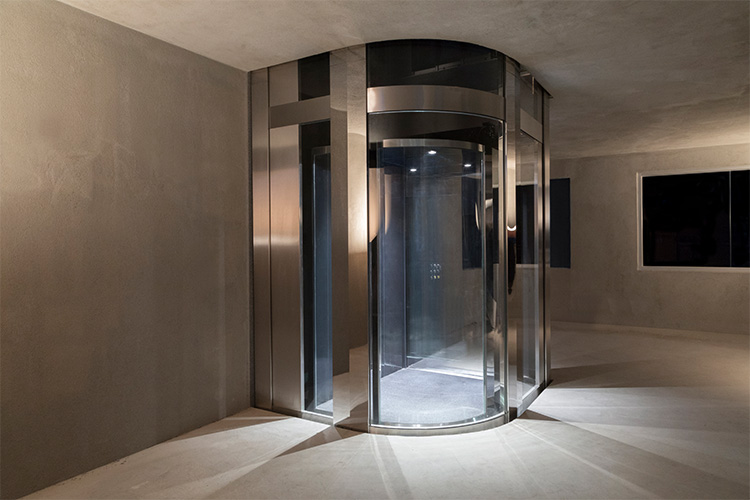An elevator is an essential feature in most commercial buildings; both for transporting people and as an efficient way to move goods between levels. If you are considering installing a commercial lift into your development, then price will definitely affect your choices. You’re after quality. You want efficiency. You want a product that is reliable. So with this in mind, you can expect a basic 2 level DDA compliant commercial lift to start from around $50,000 + GST
However, to understand how this price can change, it all depends on your needs and the factors below:
1. Type of elevator
Firstly, one of the major differences between residential elevators and commercial elevators is the DDA compliance that all commercial elevators have to adhere to. Commercial elevators must meet these standards which does set a base price, as while residential lifts can be customised to smaller sizes, all DDA compliant lift cabins must start at a minimum internal size of 1100mmW x 1400mmD.
2. Size of elevator
Naturally when something is required to be bigger and stronger the price increases due to material costs. Therefore the size of the lift you choose will be an important factor in the final price. Depending on your needs you may choose a larger cabin size and a larger duty load.
Additional safety requirements will come into play if you’re transporting heavy goods. While the speed of the elevator also plays a factor. The faster you want to get somewhere, especially with a larger duty load, can impact your cost.

3. Travel distance
Travel distance also impacts the cost of your commercial elevator. A standard travel distance between floors is approximately 4m. However if your development has a larger travel distance of 5m (it is only rare or unique buildings or structures which can tend to have this distance) and above between floors, additional costs should be expected.
4. Amount of stops
Another cost to factor in is the number of floors your elevator will need to serve. This is largely because of the cost of the additional landing doors you will require as more materials will be needed. For example, if you have five floors this means five stops, and five stops means you will need five landing doors.
5. Quality of materials and manufacturer
Lastly the quality and the manufacturer of your materials will ultimately affect the final price, with higher grade materials ultimately increasing the cost. However, while lower quality materials may drop the price, this will ultimately affect the lifespan of your elevator. Your best bet is to spend the money on quality materials and a reputable company - your lift will last longer and will need less repairs and/or maintenance over time, saving you a lot of money in the long term.
To make the best choice of commercial elevator for your next development, contact Platinum Elevators or come and visit our dedicated showroom and design centre to meet with one of our industry professionals today.


